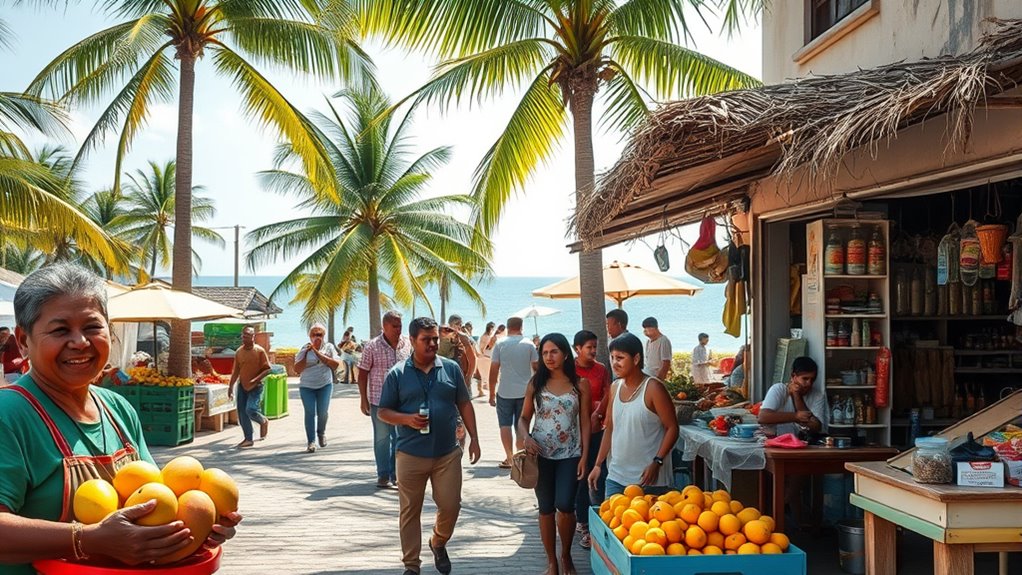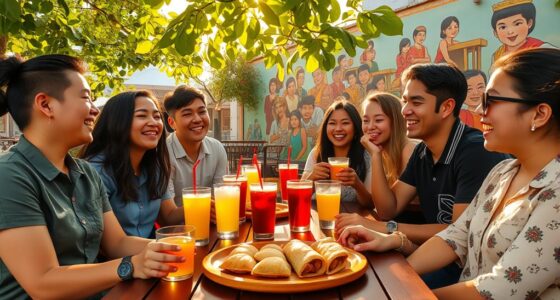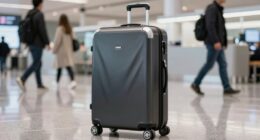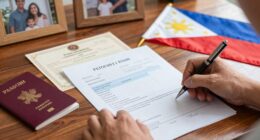To live comfortably in the Philippines, you should budget wisely across several categories. Aim for a monthly rent of around $800, keep grocery costs around $450, and set aside some funds for dining out. Don’t forget about utilities, personal expenses, and social activities, which can all add up. With smart planning, you can enjoy a fulfilling lifestyle. Explore further to uncover more tips for maximizing your budget while living in this vibrant country.
Key Takeaways
- Aim for a monthly budget of $1,000 for a comfortable lifestyle; $1,500 allows for frugality and leisure.
- Rent a spacious home for around $800, and budget $50 for utilities like water and internet.
- Set a grocery budget of about $450 and allocate $75 for dining out to enjoy local cuisine.
- Engage in community activities with minimal costs, balancing social events and personal entertainment within your budget.
- Factor in personal expenses, such as $100 for care items and potential family support, to ensure comprehensive planning.
Understanding Monthly Budget Categories
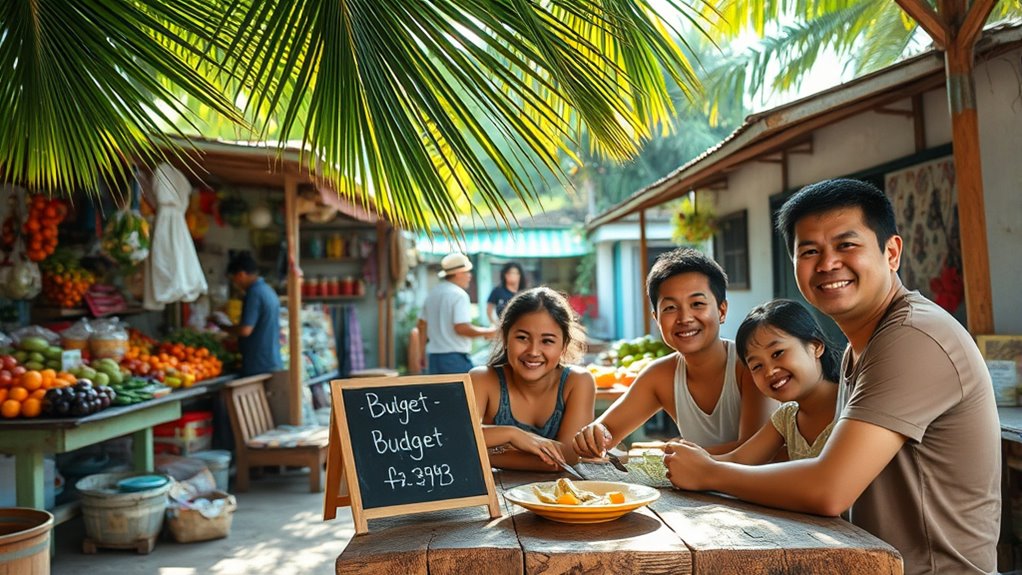
When you’re planning your budget for living in the Philippines, it’s important to understand the different monthly budget categories that can guide your spending.
You’ll generally find three tiers: low ($1,000), moderate ($1,500 – $2,000), and high-end ($2,000 – $3,000).
If you aim for a comfortable lifestyle, a $1,000 budget is more realistic, while $500 can be tight.
With careful management, you can cover basic needs on $1,000, but $1,500 allows for frugality and occasional leisure.
Knowing these categories helps you make informed choices about your expenses, ensuring you enjoy your time in the Philippines.
Housing and Utility Expenses
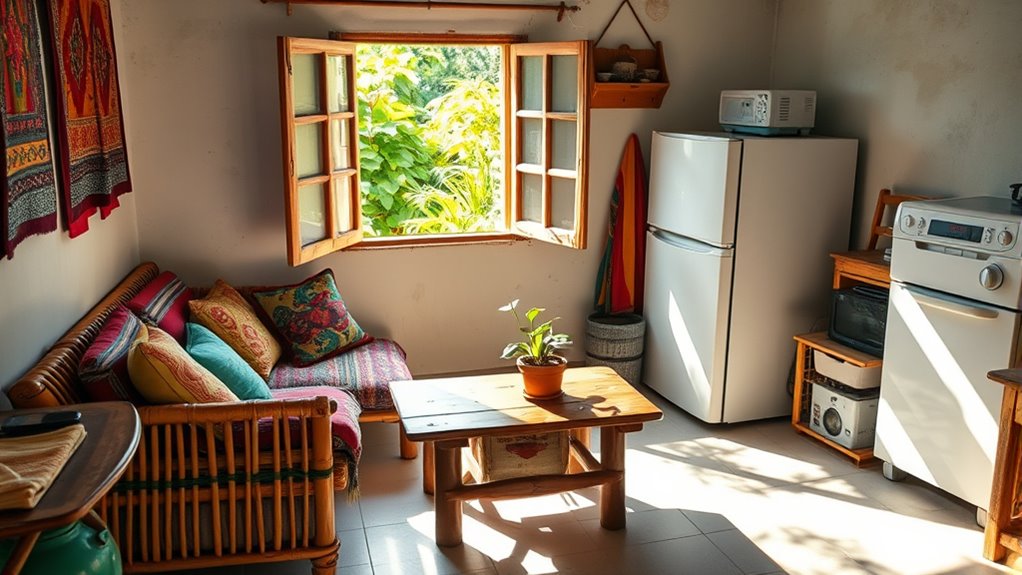
Housing and utility expenses play a significant role in your monthly budget when living in the Philippines. Depending on your location, rent can vary widely. For a comfortable lifestyle, aim for a rental around $800 for a spacious home.
Your monthly utilities might include a water bill of about $5.75, internet service for $38, and a cell phone plan around $7.50. Additionally, consider a small budget for unexpected immigration fees.
Grocery and Dining Costs
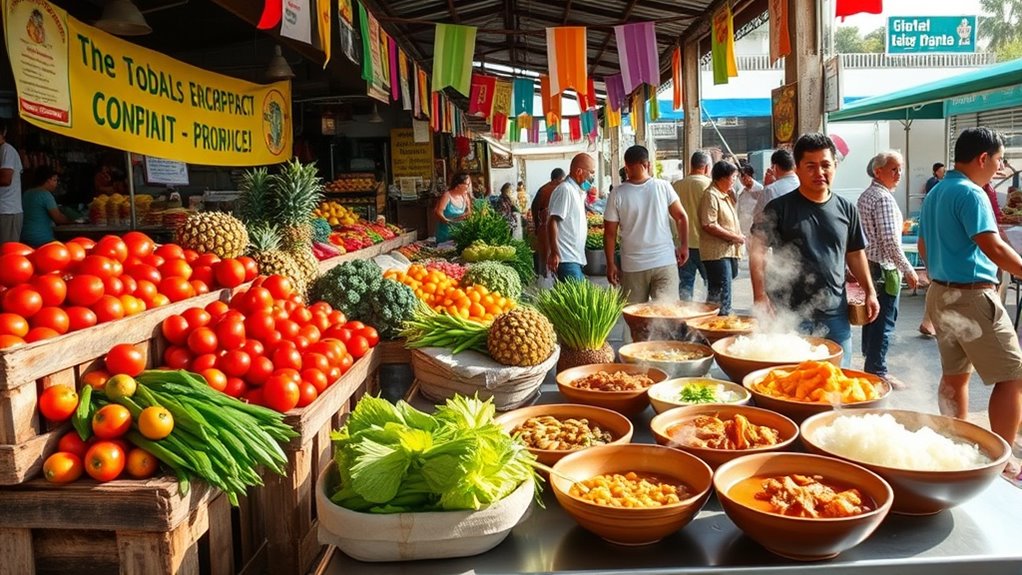
Grocery and dining costs are essential components of your monthly budget in the Philippines, and you should plan accordingly. A reasonable grocery budget is around $450, with popular stores like SNR and Kogan Market.
When dining out, expect to spend $20 to $25 for two people, which can be adjusted based on your eating habits. Setting aside about $75 for monthly meals outside home can keep you within budget.
Don’t forget to indulge in local street food occasionally, as it offers affordable and delicious options. By being mindful, you can enjoy good food without overspending. Additionally, consider utilizing cashback apps to earn money on your grocery purchases, helping you stretch your budget further.
Social and Entertainment Expenditures

Food expenses are just one part of your budget; social and entertainment expenditures also play a significant role in enjoying life in the Philippines.
Engaging with the local community can be both fun and affordable. You’ll find that attending meetups or social gatherings often involves minimal costs, like bringing a dish for around $10.
Dining out occasionally, costing about $20 to $25 for two, allows you to explore local cuisine. Don’t forget the vibrant street food scene, which offers tasty treats at low prices.
Travel and Vacation Budgeting
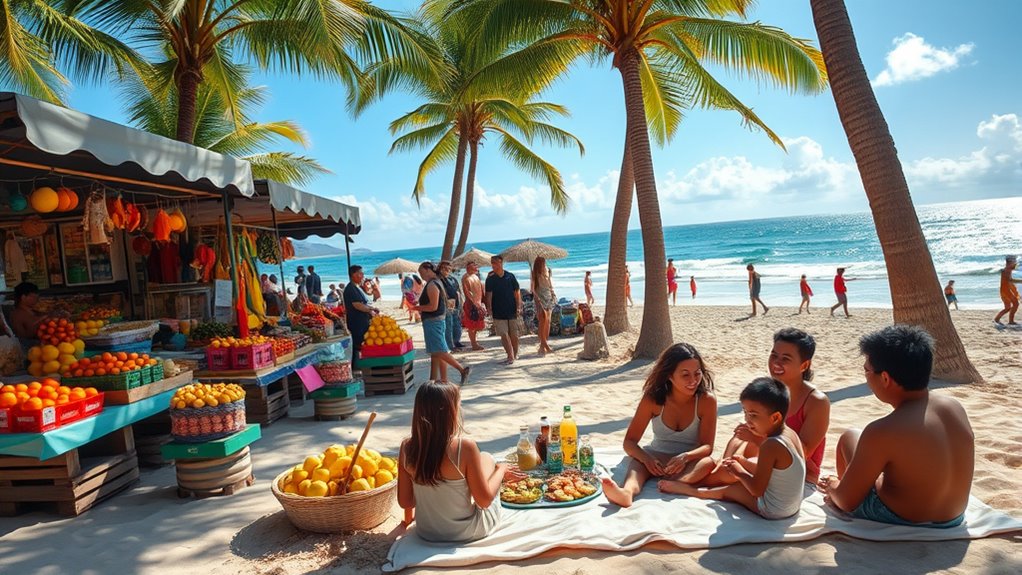
How can you make the most of your travel budget while living in the Philippines? Start by planning your trips during off-peak seasons to snag cheaper flights and accommodations.
Use local transportation like buses or jeepneys to save money. Set a realistic budget for each trip, factoring in accommodation, meals, and activities.
Explore local attractions that often have low or no entrance fees. Don’t forget to budget for unexpected costs, as travel expenses can quickly add up.
Communication and Personal Expenses

While living in the Philippines, managing your communication and personal expenses effectively can greatly enhance your overall experience.
You can save on communication by using free messaging apps like Messenger, which don’t require data. If you need to purchase load, budget for it accordingly.
Consider setting aside around $100 monthly for personal care items and medicines, as these can add up. For clothing, thrift store shopping is a great option.
Setting aside $100 monthly for personal care and opting for thrift store finds can help manage expenses effectively.
If you’re supporting family, factor that into your budget. With careful planning, you can maintain your communication and personal expenses without feeling stretched financially.
Tips for Maintaining a Comfortable Lifestyle
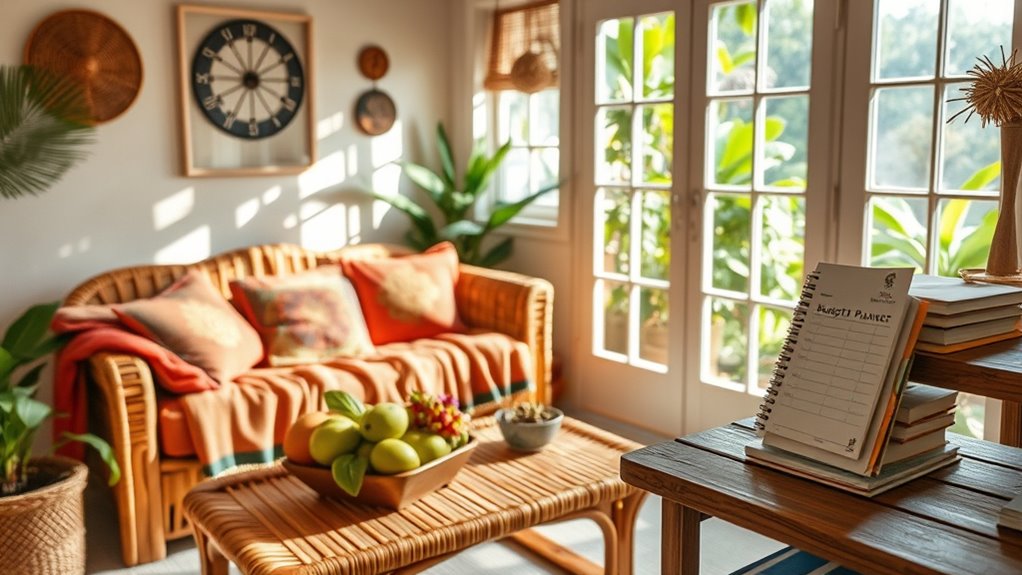
To maintain a comfortable lifestyle in the Philippines, prioritize careful budgeting and smart spending. Keep track of your expenses and adjust as needed. Here are some tips to help you:
| Category | Budgeting Tips | Additional Notes |
|---|---|---|
| Housing | Choose affordable rentals | Look for gated communities |
| Groceries | Buy local produce | Visit markets regularly |
| Dining Out | Limit dining expenses | Try street food occasionally |
Frequently Asked Questions
What Are the Best Cities for Expatriates in the Philippines?
If you’re considering relocating to the Philippines, cities like Cebu, Davao, and Baguio are great choices for expatriates.
Cebu offers vibrant urban life with beautiful beaches nearby.
Davao boasts a lower cost of living and a relaxed atmosphere.
Baguio, with its cooler climate and lush landscapes, is perfect for nature lovers.
Each city has a welcoming expat community, making it easier for you to settle in and enjoy your new adventure.
How Can I Find Affordable Housing in the Philippines?
Finding affordable housing in the Philippines can feel like a challenging treasure hunt. Start by exploring local listings online, but don’t stop there.
Immerse yourself in Facebook groups and connect with expat communities; they often have hidden gems. Visit neighborhoods to get a real feel for the area—talk to locals and look for “for rent” signs.
You’ll be surprised at the deals you might uncover, often in places you least expect!
What Local Customs Should I Be Aware Of?
When you’re in the Philippines, it’s essential to understand local customs. Respect for elders is paramount, so greet them politely. You’ll find that “mano po” is a common gesture of respect.
It’s also courteous to remove your shoes before entering someone’s home. When dining, wait for the host to start eating first.
Finally, embrace the Filipino spirit of hospitality; don’t be surprised if you’re offered food or drinks—just graciously accept!
How Do I Open a Local Bank Account?
Opening a local bank account can feel like a challenging task, but it’s quite straightforward.
First, you’ll need a valid ID, proof of address, and a bit of patience. Visit a nearby bank, fill out the application, and they’ll guide you through the process.
Don’t worry if it takes a little time; soon enough, you’ll have access to your funds and enjoy the convenience of banking in your new home.
What Are the Visa Requirements for Foreigners?
To stay in the Philippines, you’ll need a visa based on your purpose. If you’re visiting, a tourist visa allows you to stay for up to 30 days and can be extended.
For longer stays, consider the SRRV (Special Resident Retiree’s Visa) or a work visa if you plan to work.
Make sure your passport’s valid for at least six months beyond your stay, and gather necessary documents before applying.
Conclusion
As you navigate the vibrant streets of the Philippines, remember that a thoughtful budget can turn everyday moments into cherished memories. Picture yourself sipping fresh coconut water on a sun-kissed beach or savoring a delicious meal at a local eatery, all while keeping your finances in check. By balancing your expenses and embracing the local culture, you can create a life filled with adventure and joy, ensuring that every peso spent brings you closer to the experiences you crave.
